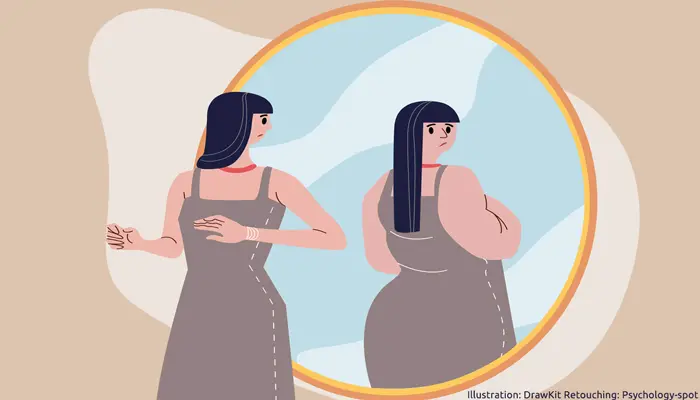
People with bulimia nervosa find themselves in a vicious cycle that feeds on themselves: they eat a lot and then work very hard to get rid of what they have eaten.
People with bulimia eat compulsively; which means that in a small amount of time they consume large amounts of food, much more than what an average person could eat in an equivalent time. In fact, they often lose control over their eating and are unable to stop until the food is completely out of sight.
Once they have eaten, guilt over the consumption sets in and they have to get rid of everything they have ingested so they vomit or use laxatives, diuretics, enemas or other medications. Sometimes they choose to fast for days after a binge episode. However, the ultimate goal is to prevent their body from absorbing calories so they don’t gain weight.
Unlike people with anorexia nervosa, identifying those with bulimia is not as easy as they are not extremely thin. In fact, their body weight is often average, although on some occasions it is possible to notice fluctuations in weight. Also, these people are often ashamed of their eating problems and try to hide their symptoms.
Behind these behaviors is an excessive concern for the body and self-esteem problems. In fact, they often base their worth as people in relation to their physical appearance.
Symptoms of bulimia nervosa
1. Recurrent episodes of binge eating, occurring at least twice a month for a minimum of three consecutive months.
2. Eating during a discrete period of time (for example, in a 2-hour period), an amount of food that is definitely greater than what most people could eat in that amount of time and under similar circumstances.
3. A feeling of lack of control over eating while the episode is taking place (for example, the feeling that one cannot stop eating or control what and how much is eating).
4. Behaviors aimed at avoiding weight gain, which may include self-induced vomiting, excessive use of laxatives, diuretics, enemas, or the use of other medications. They may also refuse to eat (fast) or engage in excessive physical exercise.
5. Distorted self-image and self-assessment linked to how it looks from the physical point of view.
It is worth clarifying that there are two types of bulimia nervosa. We can find purgative bulimia, in which self-induced vomiting or the use of laxatives, diuretics or enemas is regularly practiced; and non-purging type bulimia, in which other inappropriate compensatory behaviors appear, such as fasting or excessive physical exercise.



